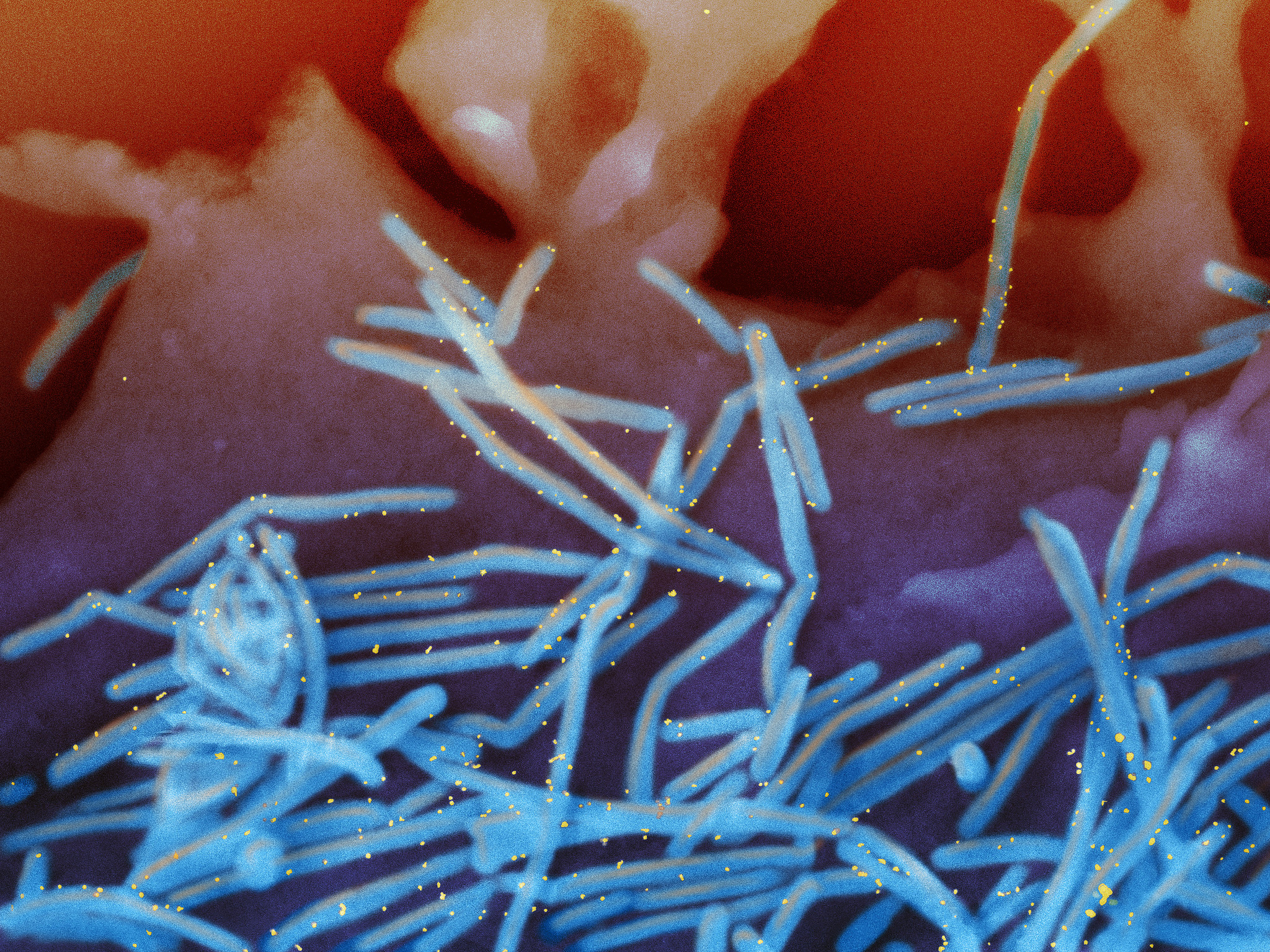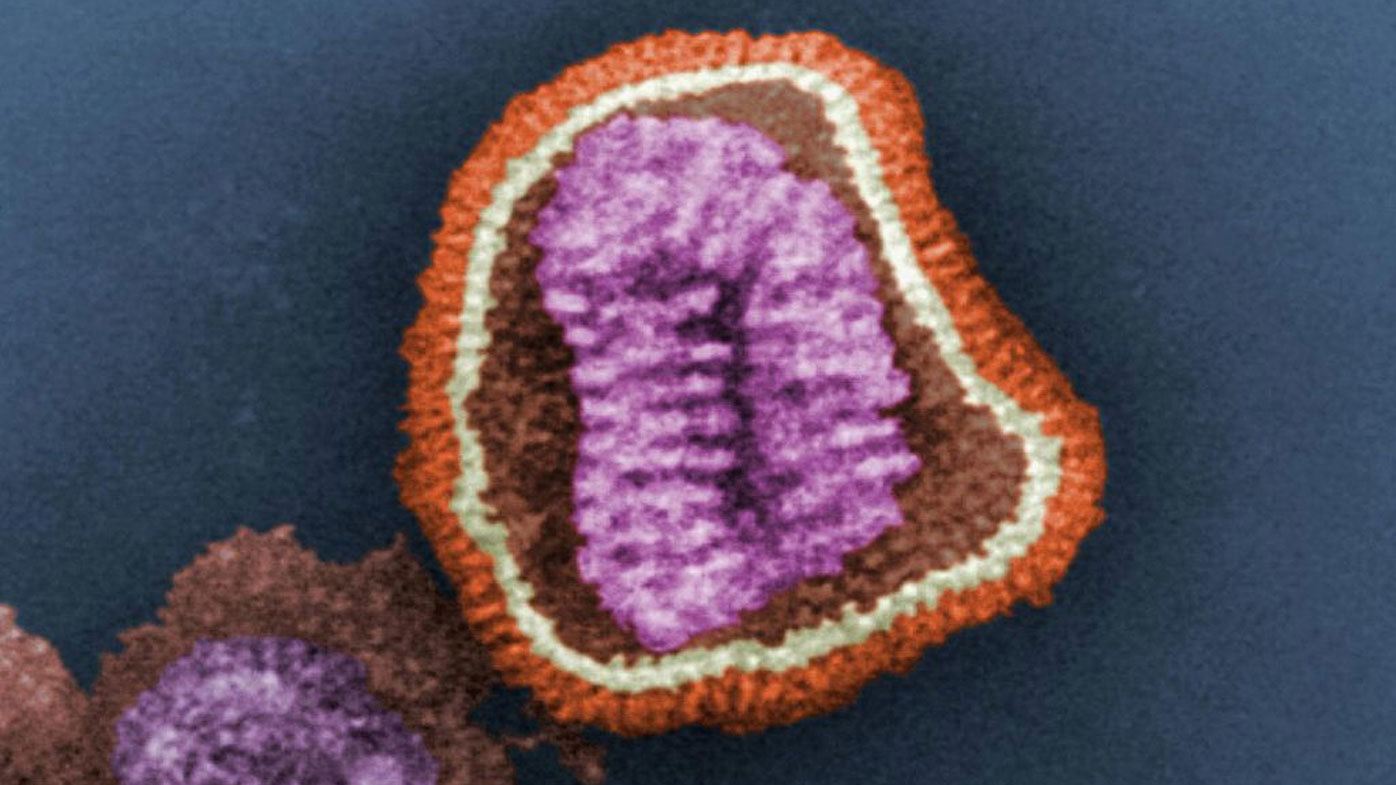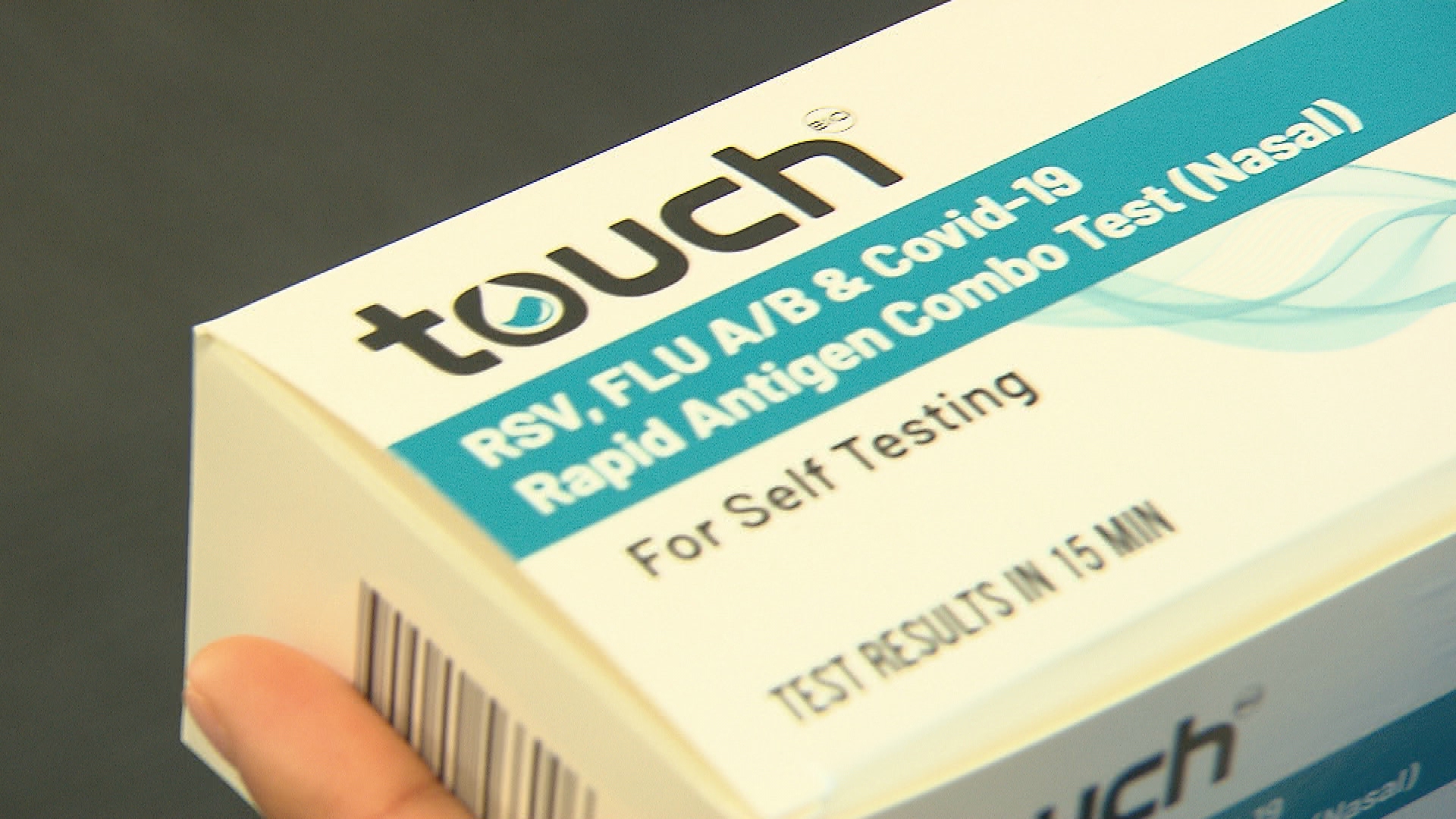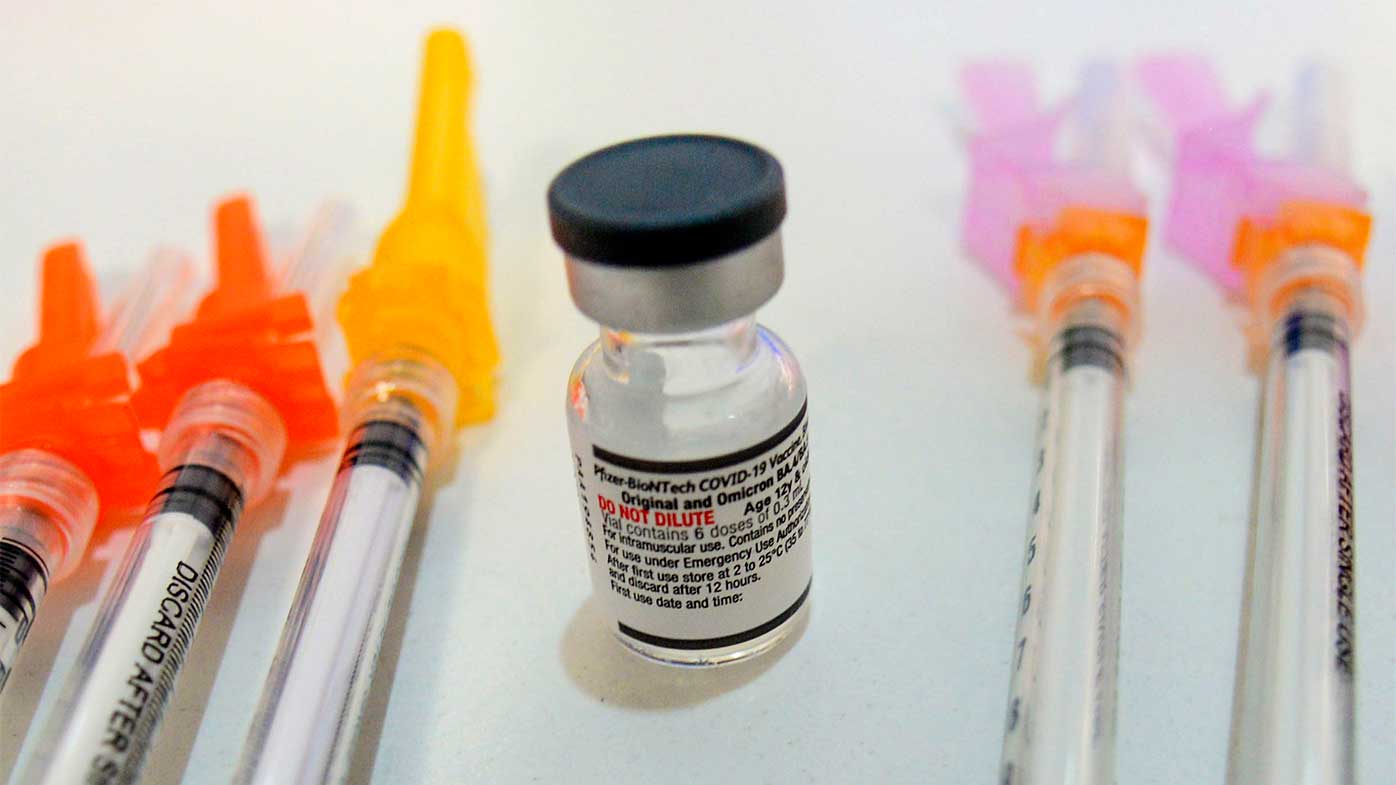A bad flu season in Australia is being compounded by the spread of RSV and COVID-19 throughout the community.
The respiratory illnesses share many of the same symptoms, making it difficult to tell which one of them you've caught – or if you're just coming down with a common cold.
Here's a bit more information that could help you tell whether you've caught RSV, influenza, COVID-19 or a cold.
READ MORE: How Australian psychiatrists can prescribe psychedelics

What is RSV?
While most people are already familiar with flu, colds and COVID-19, RSV – or respiratory syncytial virus – isn't the most well-known illness.
It's a highly contagious and common virus. In fact, almost everyone will have contracted it at least once by the time they turn three, according to the Australian Health Department.
RSV will often be mild, but in severe cases it can prove life-threatening, particularly to young children.
EXPLAINED: What is respiratory syncytial virus?

What are the symptoms of COVID-19, flu, RSV and a cold?
Each of the four diseases shares a few common symptoms – things like a runny nose, cough, fever or sore throat can be experienced by someone who's contracted any one of them.
Some of the other symptoms, however, are more closely associated with one or two of the viruses. Fatigue, for example, is common for flu and COVID-19 but not the others.
Here's a general run-down of the symptoms for each, according to information from the Australian Health Department and America's Centres for Disease Control and Prevention (CDC):
| COVID-19 | Flu | RSV | Cold | |
| Fever | Sometimes | Common | Common | Rare |
| Cough | Common | Common | Common | Common |
| Sore throat | Common | Sometimes | Sometimes | Common |
| Shortness of breath/wheezing | Sometimes | No | Sometimes | No |
| Fatigue | Common | Common | No | Sometimes |
| Loss of taste/smell | Sometimes | Sometimes | No | Sometimes |
| Body aches | Sometimes | Common | Rarely | No |
| Headache | Common | Common | Sometimes | Common |
| Stuffy/runny nose | Common | Sometimes | Common | Common |
| Diarrhoea | Rare | Sometimes in children | No | No |
| Sneezing | Common | No | Sometimes | Common |
| Vomiting | Sometimes | Common | No | Rare |
Someone with RSV might develop an ear infection on top of the other symptoms, although this is less common, and lethargy is a symptom that doctors and other medical professionals will look out for in all four.
Similar as the symptoms can be, there are some differences in their onset for the different illnesses.
According to the CDC, flu symptoms tend to appear suddenly and all at once, generally sometime between one and four days after exposure to the virus.
For COVID-19 and RSV, however, symptoms can develop gradually in stages – this can be over the course of between three to 10 days in the case of RSV, and one to 14 days for COVID-19.
READ MORE: Aussie researchers make breakthrough IVF findings

How long a bout of each illness lasts differs from virus to virus.
An RSV infection, according to the CDC, will usually end after a week or two, and both influenza and a cold can last between a few days to a couple of weeks.
People can also get over COVID-19 in a few days, but are not considered fully recovered until they've been asymptomatic for seven days, which can take weeks, according to the Australian government's Healthdirect service.
However, if complications or a severe case of any of the illnesses arise, the sickness can last for much longer.
READ MORE: What is the Indigenous Voice to parliament?
So how can you tell if it's RSV, a cold, flu or COVID-19?
Given how similar the symptoms are, you're generally not going to be able to tell which virus you have just by judging them.
The best way to determine what you've caught is, of course, to get in touch with a doctor, who'll often be able to diagnose flu, RSV and a cold through signs and symptoms alone, and to get tested.
Australia's Therapeutic Goods Administration (TGA) approved a triple RAT for use earlier this year, which tests for COVID-19, influenza A and B, and RSV.
A double RAT that checks for COVID-19 and flu is also available.
Both of those viruses, as well as RSV, can be diagnosed through a swab sent to a pathology lab for testing, while a blood test can also be taken to check for RSV.
READ MORE: US approves first vaccine for RSV after decades of attempts

Who is more vulnerable to each disease?
As each of COVID-19, influenza, RSV and the common cold are all viral respiratory illnesses, it's no great surprise that there are similarities in the groups that are at risk from them.
Being immunocompromised and having asthma are risk factors for all the diseases, while the federal government also says pregnant women and Indigenous Australians are at higher risk of developing complications from both COVID-19 and flu.
In terms of age groups, severe illness from COVID-19 is generally associated with older people – those aged 65 or over.
RSV, on the other hand, is more typically linked to life-threatening cases in infants, although it can also pose a risk to older people who have existing heart, lung or immune issues, according to the Health Department.
Influenza is a worst-of-both-worlds case – both young children aged five or under and adults aged 65 or older are at risk of developing a serious case.
The common cold tends to affect children more frequently than adults.
"Children may get between five and 10 colds a year, while adults may get two to four colds each year," Healthdirect says.
READ MORE: What the different colours of mould in your house mean
How can I protect myself from the four viruses?
Practising good hygiene, including regularly washing your hands, covering your nose and mouth when sneezing or coughing, cleaning surfaces and throwing out used tissues, can help stop the spread of each of COVID-19, the flu, RSV and the common cold.
Wearing a mask can also help.
READ MORE: The changes coming to your tax return this year

What treatments are available for RSV, flu, COVID-19 and the cold?
Vaccines are available for both COVID-19 and flu. Adults are encouraged to get a COVID-19 booster every six months, while influenza is a seasonal vaccine.
While the USA has approved an RSV vaccine, Australia has not – although there are hopes that one won't be too far away.
Anti-viral medications can be prescribed to at-risk COVID-19 patients, but antibiotics won't work for any of the four diseases, as they're all caused by a virus.
Otherwise, treating each of COVID-19, flu, RSV and the cold at home is quite similar; get lots of rest, drink plenty of fluids and eat healthily.
You can also relieve the symptoms of the viruses by taking over-the-counter medication like paracetamol or ibuprofen.
Sign up here to receive our daily newsletters and breaking news alerts, sent straight to your inbox.
Source: https://ift.tt/yeHUhl3
Comments
Post a Comment